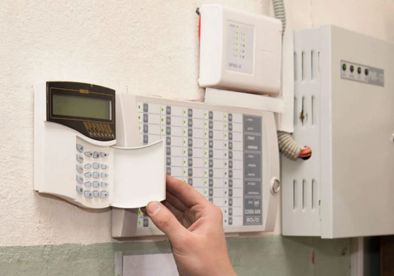Fire alarm maintenance

Fire alarm maintenance is a set of measures aimed at ensuring the smooth operation of the system. Regular inspection of equipment allows timely detection of malfunctions, prolong the service life of devices and guarantee prompt detection of fires.
Why is it important to maintain a fire alarm?
The fire alarm system is the basis of safety, which protects people’s lives and material values. Even small failures in its operation can lead to serious consequences. Scheduled maintenance helps:
- eliminate false alarms;
- detect and fix malfunctions at an early stage;
- maintain correct hardware settings;
- comply with the requirements of current norms and standards.
Key stages of maintenance
Alarm maintenance involves several sequential steps:
- Initial verification. A visual inspection of the equipment is carried out to identify damage, contamination and other defects.
- Diagnostics of connections. Specialists check cable lines and connecting elements for their reliability.
- Testing the system. The operation of sensors, audio signals, central equipment and backup power is being checked.
- Correction of settings. If necessary, the software is updated or parameters are reconfigured.
- Documentation of the work. The results of the checks are recorded in a report, which is transmitted to the customer.
How often is maintenance necessary?
The frequency of alarm checks depends on the type of facility and its functional purpose. Usually the work is carried out:
- once a month – to perform a basic check;
- once a quarter – for advanced diagnostics;
- every six months or a year – for comprehensive maintenance.
The most common problems
Common fire alarm failures include:
- clogging or failure of sensors;
- damage to cables or connectors;
- discharging the batteries;
- errors in sensitivity settings;
- the need for software updates.
These faults can be prevented or eliminated during regular maintenance.
Who should carry out the maintenance?
Fire alarm maintenance work requires professional skills and knowledge. This should be done by companies that have the appropriate license and qualified personnel.
Responsibility for the health of the system
The owner or tenant of the facility is obliged to monitor the technical condition of the alarm system. Failure to comply with mandatory inspections may result in fines and other sanctions.
The benefits of regular maintenance
Routine inspections and diagnostics ensure:
- stable operation of the system;
- reducing the risk of false positives;
- compliance with legal requirements;
- saving on repairs by preventing serious breakdowns.
Professional fire alarm maintenance is the key to safety at any facility. Entrust this task to specialists to ensure reliable protection in case of an emergency.